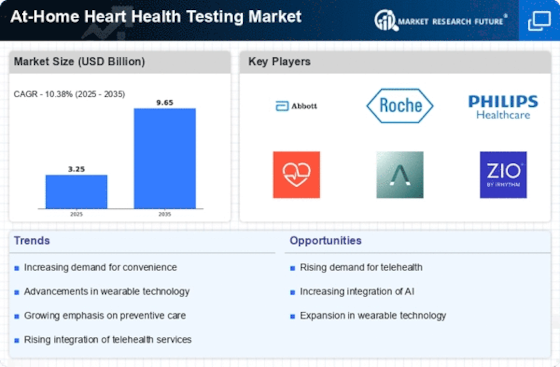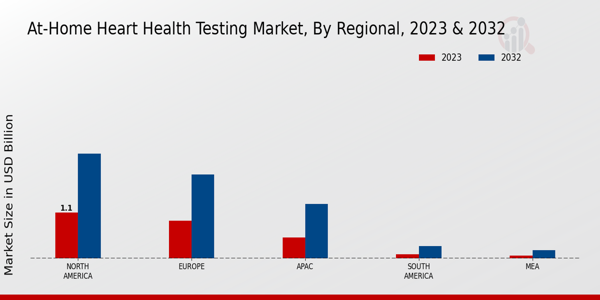The At-Home Heart Health Testing Market has emerged as a highly competitive landscape driven by an increasing demand for accessible and convenient cardiac health monitoring solutions. With the growing awareness of heart-related diseases and the need for proactive health management, numerous players are entering the market, offering innovative products designed for home use. Technological advancements and the rise of health-conscious consumers have created fertile ground for the development of at-home testing devices that deliver reliable results and enhance user experience. The competitive dynamics are shaped by factors such as pricing strategies, product differentiation, distribution channels, and customer engagement efforts.
As the sector continues to evolve, companies are striving to establish a strong foothold by focusing on quality, effectiveness, and customer support, making market insights crucial for understanding overall trends and future forecasts.Teleflex has carved a notable presence in the At-Home Heart Health Testing Market, leveraging its extensive expertise in medical technology. The company is recognized for its commitment to producing high-quality health management devices, ensuring that its products adhere to rigorous safety and efficacy standards.
Teleflex’s strengths lie in its innovative approach to product development, enabling it to offer advanced testing solutions that cater to a wide range of cardiac health needs.
Additionally, the company's focus on research and customization allows it to respond effectively to consumer demands and industry trends. Teleflex also benefits from a strong distribution network, ensuring that their devices are readily available to healthcare providers and consumers alike. The company’s dedication to customer engagement and support enhances user experience, establishing a reputable name in the at-home heart health testing domain.Omron Healthcare is another significant player in the At-Home Heart Health Testing Market, known for its pioneering solutions in personal health monitoring.
The company’s strengths are rooted in its extensive experience and a deep understanding of healthcare technology, which allows it to deliver reliable and user-friendly heart health testing products.
Omron's focus on innovation is demonstrated through its commitment to integrating advanced technology into its devices, facilitating accurate and efficient monitoring of cardiac health. Furthermore, the company's established reputation for quality assurance reinforces consumer trust and loyalty. Omron Healthcare’s global presence enables it to reach a wide demographic, and its emphasis on education and awareness around cardio health enhances its market positioning. The company also places a significant emphasis on support services, ensuring that users receive adequate guidance in utilizing their health testing devices, thereby solidifying its competitive edge in the market.























Leave a Comment